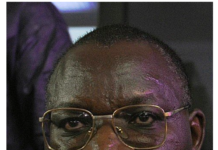In Kinshasa, the capital of the Democratic Republic of Congo (DRC), on Saturday, February 10, 2024, a series of anti-Western demonstrations have unfolded, particularly in the Gombe district—a residential area that houses several embassies including those of the United States, Spain, and the headquarters of the United Nations Organization Stabilization Mission in the Democratic Republic of the Congo (MONUSCO). These protests, which began few days ago, have been marked by demands for the United States to exert pressure on Rwanda. The protestors accuse Rwanda of supporting the M23 rebels, who control territories in the eastern part of the DRC. The demonstrators, mainly motor-taxi drivers, attempted to block the June 30th Boulevard and set tires on fire near the U.S. Embassy.
The protests also extended to the French embassy in Kinshasa, where the population expressed their frustration by burning tires and throwing stones. They accuse France of supporting Rwanda and the M23 rebels in the eastern DRC. This unrest has persisted for three days in the city center, particularly on the June 30th Boulevard, where the Congolese population has been demonstrating at several embassies.
The intensity of the protests around the U.S. Embassy has escalated, with demonstrators burning tires and calling for the United States to leave the Congo, accusing it of complicity in the situation in eastern DRC. Similar actions were taken at the entrance of the avenue hosting the embassies of China, the United States, Spain, and the MONUSCO headquarters. Despite police intervention, the protestors remain undeterred, continuing to accuse the United States of supporting Rwanda and the M23 rebels. During this event, vehicles of the MONUSCO and some embassies were attacked.
#Kinshasa : agression Rwandaise, Manifestation en cours à Gombe; véhicule Nations Unies incendié et Grosse fumée à l’entrée de l’avenue de l’hôtel qui abrite les ambassades de Chine, Etats – Unis, Espagne et le QG de la @MONUSCO. Des manifestants Anti – occident manifestent. pic.twitter.com/D73FFV5rWX
— DRC NEWS TODAY (@DRCNewsToday) February 10, 2024
Moreover, diplomatic vehicles and several CANAL+ shops in Kinshasa were vandalized, and two MONUSCO jeeps were set on fire, with numerous windows smashed. The protestors accuse the French media operator of censoring messages from Congolese supporters during the broadcast of DRC matches.
In response to these manifestations of violence, the DRC government, led by Vice Prime Minister and Minister of Interior, Security, and Customary Affairs Peter Kazadi, convened an urgent security meeting. The government strongly condemned these acts of violence.
The Ivory Coast Embassy in Kinshasa issued a statement on February 10, 2024, denouncing the attacks on several embassies and international organizations in Kinshasa. Due to the unrest, the embassy canceled a gathering for the African Nations Cup 2023 final between Ivory Coast and Nigeria, advising its citizens in the DRC to exercise caution and avoid public gatherings.
Bintou Keita, the head of MONUSCO, condemned the attacks on MONUSCO personnel in Kinshasa, highlighting the detrimental impact on the mission’s efforts to combat negative forces in the DRC in partnership with the Congolese Armed Forces (FARDC) and the Congolese National Police (PNC).
As the authorities disperse the demonstrators, there are promises of further protests. Meanwhile, in Paris, the Congolese diaspora held a demonstration at the Place de la République to support the population of eastern DRC, showcasing the global solidarity with the Congolese people’s plight.
#RDC A l’appel de l’Association «Lisanga Bana Mboka», la diaspora de la République Démocratique du Congo a manifesté ce samedi 10 février à #Paris en #France pour dénoncer le silence de la Communauté internationale sur les atrocités à l'Est du pays, agressé par le #Rwanda via le… pic.twitter.com/CnVVn6lINA
— Yves Buya (@YvesBuya1) February 10, 2024
































































